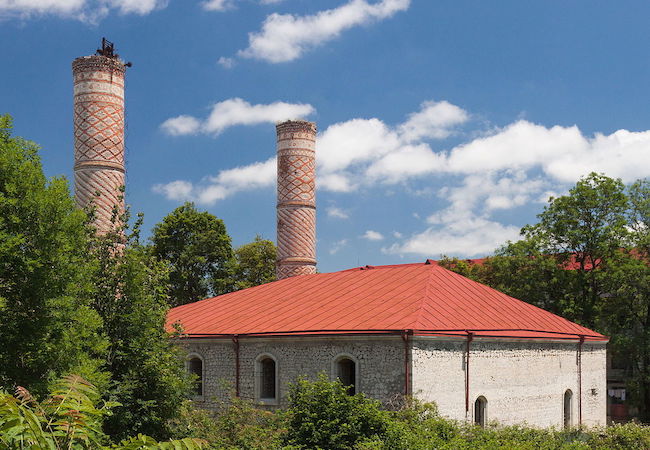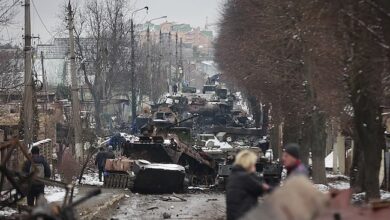Azerbaijan’s social infrastructure and permanent changes strained in recent escalating conflict

The Azerbaijani record of the Nagorno-Karabakh conflict is a fatalistic scorecard of all those damages imposed upon both physical and social infrastructure. This conflict has been one of remission and relapse even pre-Soviet era. On Saturday, Azerbaijan experienced the bitterness of conflict relapse, with 16 lives ended in an outbreak of military aggression from Armenia in the region.
Conflict’s re-escalation opens the door for a surge in global interest in the social infrastructure of the region. The social infrastructure is in grave jeopardy, having already been put at extreme risk prior to this recent escalation.
The risk of progress being plunged into reverse is also a palpable one, as it has been reported within the last week that Azerbaijan has been making decent headway in both the health and education aspects of its social infrastructure. While Azerbaijan’s Human Capital Index has seen marked improvement, the country will need to invest more in its social infrastructure to see a recovery to pre-wartime status. This all could be sent reeling backward if conflict escalations increase.
Today, these lasting damages continue to support the illegal Armenian state settlements’s activities in the region. The tearing down of one national construct has paved the way for reconstruction. Armenians in the Azerbaijani region, seeking statehood control over an estimated 20 percent of Azerbaijan proper, take advantage of these breaks in the mold that formed Post-Soviet Azerbaijan.
The priority in 2020 has been to forward talks on Azerbaijan’s legitimate claim to the Nagorno-Karabakh region, where the majority of the issues present. The president of Azerbaijan has argued, in talks that commenced in February, that the international community should return to pre-Soviet treaties to recognize the legitimacy of Azerbaijani claim to the region. The Carnegie Endowment for International Peace states that a treaty was signed in 1805 that legitimized Azerbaijan’s claim to Karabakh. The president also stated that there was no recent historical claim of Armenians to the region. Clarifying the legitimacy of Azerbaijani claims to the region is the first logical step toward dividing infrastructural zones, establishing finance, and institute reconstruction and construction efforts.
These talks will likely need to be instigated and mediate by the international community as Armenia is more focused on the present than the past. Yet, establishing the Azerbaijani heritage of the region is key to establishing a grounding principle. Likewise, an international intervention in heritage talks would eliminate the risk conspiracy theory presents to forward-looking infrastructural efforts.
The international community would need to seek a third party conflict resolution in terms of social infrastructure first before efforts to restore physical damages, such as the risk of abandoned oil refineries, can be addressed. The recent talks with the U.N. on September 26 show that, for both sides, those who live in the conflict region are the priority. Human settlements are the priority on both sides, although it appears that through the personalization of the conflict, the two nations have a clouded understanding of their separate infrastructural priorities. Brookings Institute calls this “human infrastructure,” and it is considered an overlooked element of infrastructure pursuits.
While the breaks are there, Azerbaijan has an improved physical infrastructure compared to some of the other Eurasian countries, states the OECD ilibrary, and could use this to its advantage, to gain strategic position support in the West. Azerbaijan is a strategic region of the energy and oil trade as it pipes into Europe from the Caspian region. A strong Azerbaijan can solve some international questions of energy sector support to Europe.
Yet, to reach a viable position with the foreign entities, Azerbaijan must overcome its social infrastructure issues. These issues are more complex than the mere physical ruins of war. The logistic process in Azerbaijan has been severely impacted as well.
The nation is highly dependent on oil and energy outputs, yet the World Bank Group, as of 2019, has given Azerbaijan a low Logistics Performance Index score. Azerbaijan was at the number 123 spot in a list of 167, due to poor “soft” trade infrastructure. This “soft” trade infrastructure has to do with the competence of transport and customs and of logistics services.
Azerbaijan, under the weight of war stress, has been a slow urbanisation and modernization developer, with cross border priorities high on the list of government needs and priorities.
Social infrastructure changes in a number of ways, some more subtle than others. One is the affirmation by prominent leaders of the international community that the illegal occupation of Azerbaijani territories is tolerable. One incident of this occurred when Professor Eugene Kontorovich posted a criticism of Human Rights Watch Middle East department lead Sarah Leah Whitson in the Wall Street Journal Opinion, see ONA news.
In this article, Whitson was criticized for being partial to Armenian illegal settlements in Azerbaijan, as she took a position in defense of Armenian vineyards and wine production even on land that belonged to the sovereignty of Azerbaijan. Whitson herself came from an Armenian family and had expressed clear support of the settlement policies in her elevated position within the Human Rights Watch.
Whitson had been a present campaigner for Armenia’s social elevation, presenting as the master of ceremonies for the Armenian National Committee of America. The Armenian National Committee of America, or ANCA, is a pro-settlement charity that presses for Western support of Armenia’s defense that the Karabakh region is an “integral part of the Armenian homeland.”
Recent discussions in the UN General Assembly between the Azerbaijani and Armenian president shows a renewed sense of tension in the subordinate region. The result is a renewed risk to infrastructure, including the social infrastructure.
The situation is expected to have a ripple effect on Europe surrounding the conflict region. The Foundation for the Defense of Democracies, which is based in Washington D.C. emphasizes a renewed risk to Europe from the conflict as of July, when clashes erupted in the Tovuz region once again. The FDD cited threat is an anticipated reflection on the energy and transport corridor from the Caspian and into Europe. As of July, Washington had not taken any visible efforts to stall the conflict in this region.
While foreign lobbies have traditionally been drawn to the Armenian cause because of Armenia’s propaganda media, the U.S. may take a closer look at this stage in tension progressions. FDD states that Armenia receives support from Tehran. This has triggered tremors in the social infrastructure of Iran’s domestic politics, as FDD notes one-third of the Iranian population are ethinc Iranian-Azerbaijani. Azerbaijani diaspora express strong discontent with the Iranian regime’s support of Armenia despite the heavy ethic presence of Azerbaijani in Iran. Should tensions and reactionary politics between the U.S. and Iran increase, the U.S. may take interest in brokering stronger ties with Azerbaijan and the Azerbaijani diaspora within Iran. This would effectively change much of the Western rhetoric toward the regional conflict that has received strong Western backing from powerful individuals such as Human Rights Watch’s Whitson.
The U.S. will need to take action if they are to secure their Caspian region strategy, stated the FDD. The actions that the U.S. chooses to take, whether through direct interest in Azerbaijan’s strategic energy position, or in securing the support of the Iranian Azerbaijani diaspora, are critical to the future of social infrastructure. Intervention from the U.S. would supply the means for Azerbaijan to prioritize and consolidate its infrastructure objectives. Seizing back the full power of restored infrastructure will assert Azerbaijani sovereignty in the region. Resumed and fully functional trade with the U.S. sovereign powers would then detract and eliminate the economic advantages the settlement economy has over Azerbaijan. This would improve the social infrastructure, balancing the playing field where Azerbaijan has more resources to defend its international interest, as per international law.
Original by Republic Underground




